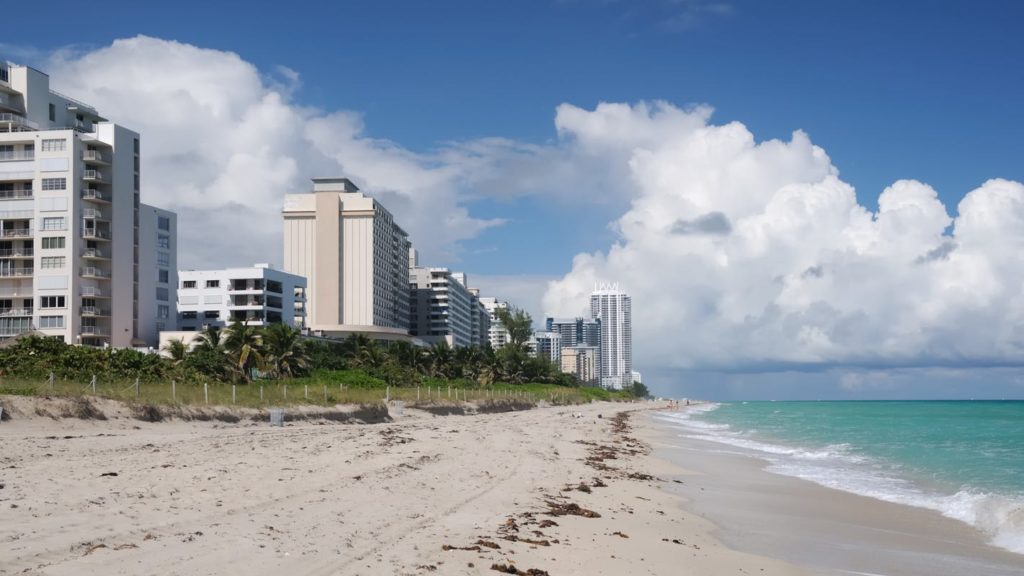Below is a review of the posts (on Facebook, LinkedIn, and Twitter) from the past week. You can check out the full posts by clicking on the links.

In the post on Sunday 4/19/20, we saw that a metals company settles an EEOC claim that it refused to hire workers over 40. This case did not go to suit but settled. Here, the EEOC alleged that the company, Haynes International, Inc., violated the ADEA by refusing to hire applicants because of age – who and when are noted in the post. The company decided to settle upon payment of $180,000 and other non-monetary relief as listed in the post.
TAKEAWAY: Treat all employees the same, regardless of age. Period.

The post on Monday 4/20/20 asked: What are employees’ rights when their company is considered essential? This question is on many minds now. The first place to look for an answer is the employee handbook/policy manual to see what, if any, guidelines there might be. (OK, there is probably nothing in there about being essential since it is new to most of us, but look anyway.) Assuming there is nothing there, it comes down to the reason for the need such as those mentioned in the post. If the employee does not want to (return to) work, what might happen from the employer’s view is in the post. However, the reality is that both the employee and the company need each other, so working together will be the best resolution. If, however, the employee cannot return to work for reasons that might be covered by CARES (or the new extended family leave provisions), that is different.
TAKEAWAY: Before taking adverse action against an employee deemed essential who cannot or does not want to return to work, consult with an employment lawyer to make sure you are on firm legal footing.

The post on Tuesday 4/21/20 was about the coronavirus and condos (or HOAs): Can the association make new rules because of the COVID-19 outbreak? We have all heard about COVID-19 and the workplace, but what about the place where we all spend most of our time now, our house, especially if it is in a planned community? You should know by now that without a pandemic, an association’s Board can make and enforce rules deemed to be in all residents’ best interests. Does that change during a pandemic like COVID-19? Maybe. The Governing Documents are there as noted in the post and function as noted in the post. However, there might be an overlay of a local or state statute or order that requires or prohibits certain actions. Examples are in the post. The Board then must act pursuant to that statute or order, even if it has an adverse effect on owners/residents.
TAKEAWAY: Whether an association’s Board is acting lawfully is a good question – one that should be answered by an attorney well-versed in community association law before a potentially-questionable action is taken.

The post on Wednesday 4/22/20 was about what the Defense Production Act is and how it can help the Government fight COVID-19. I can say that this author was not familiar with the DPA prior to COVID-19 but has now become more educated about it. The DPA was enacted in 1950 and has been amended since then It permits the President to “influence domestic industry in the interest of national defense … to shape the domestic industrial base so that, when called upon, it is capable of providing essential materials and goods needed for the national defense.” You probably know some examples from the recent news; others are in the post. The statute has been broadened over the years and now includes natural disasters, terrorist attaches, and other national emergencies. There are 3 parts to the DPA. The first part authorizes the president to prioritize certain defense programs, contracts, and orders, and allocate resources accordingly. How that plays out has also been in the news and is explained in more detail in the post. The second section of the DPA establishes the president’s authority to invest in specific industries. This is a financial incentive provision and examples of how it might be used are in the post. The third section of the DPA includes an array of provisions complementing the purpose of the Act, such as creating the basis for voluntary agreements to develop strategies and plans of action about how to better provide for national defense. More examples are in the post (of both potential overreaching and suggested uses).
TAKEAWAY: It is hard to fight an unseen “enemy” – the DPA gives the president some tools to help in that fight – know what the DPA allows the president to do in case it reaches your company or industry.

In the post on Thursday 4/23/20 we learned that the EEOC sued a restaurant group for sexual harassment and constructive discharge. So, what happened? The EEOC alleged that the owner of 3 restaurants subjected a female waitress to egregious sexual harassment (which forced her to quit). How? The owner, who was also the chef, exhibited unwelcome and offensive behavior, including that mentioned in the post. Yuck! Pre-litigation conciliation failed, so the EEOC sued.
TAKEAWAY: Practice what you preach: train your employees how not to act and then take it to heart and show them by action.

The post on Friday 4/24/20 was about an employer’s responsibilities under the ADA in light of COVID-19. Yes, you need to know this. The first question is whether the coronavirus is a disability under the ADA. The answer is: we don’t know. The requirements under the ADA are in the post, as well as recent guidance by the EEOC. Even so, if an employee has a preexisting disability that puts him or her of greater risk to contract, or by contracting, COVID-19, then that might give the employee the right to request accommodation. How the interactive process would play out in this scenario is in the post while staying within the normal scheme (accommodation requested, discussion ensues, undue hardship considered if applicable). The difficulty of obtaining medical documents at this time should be considered and alternative means used as suggested in the post. How and where the employee is currently working, i.e., at the normal place of business or remotely, also plays into the accommodation process. And then there is the question of whether an employee permitted to work remotely during the pandemic must be allowed to continue working in that way. The answer is in the post.
TAKEAWAY: Employers and employees must know their rights and obligations during the pandemic – consult an employment lawyer for assistance.

Finally, in the post yesterday 4/25/20, we learned that a former PeaceHealth employee alleges months of racial discrimination in a lawsuit. The employee is African American. He worked as a project manager. The suit alleges that he was hired in December 2017 and resigned in March 2020 While there was no issue with performance for the first 7 months or so, he alleges that his new supervisor mistreated him. Then, in August and December 2018, he applied for but did not receive promotions. He filed an harassment complaint against the supervisor. The chain of events that set off is noted in the post (including the evidence). Fast forward to May 2019 when he filed a complaint of race discrimination. Yes, the supervisor then took the action noted in the post. A few weeks later, it got worse; see the post. In late June 2019 he filed an EEOC charge and requested medical leave for a few months due to the conditions triggered by the work environment. How the company (re)acted is in the post. Then, in late December 2019, he complained again to HR (the substance is in the post); the company’s swift (re)action is also in the post. In January 2020, the employee provided a doctor’s note requesting transfer to a different supervisor; the company denied the request. He took medical leave through early March at which time he felt compelled to resign.
TAKEAWAY: Even if discipline or other adverse action taken against an employee has an otherwise legal basis, the timing can make it suspicious – and remove the legality. Talk to an employment lawyer.

 York, Pennsylvania 17403
York, Pennsylvania 17403